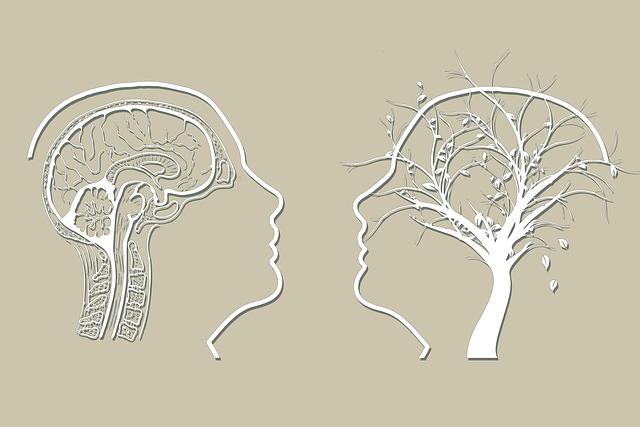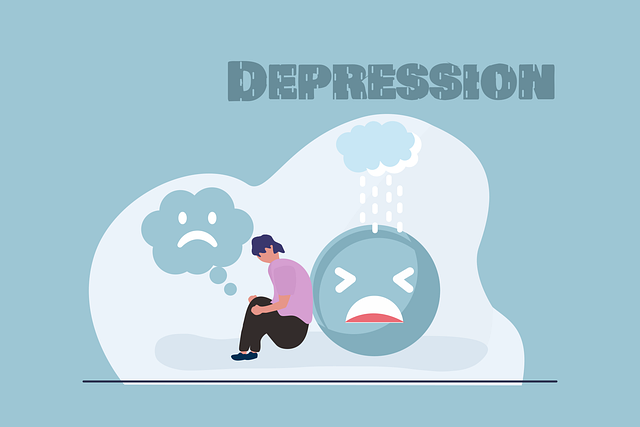In Louisville's developmental disability therapy settings, healthcare providers face high emotional and physical demands, exacerbated by potential resource gaps, leading to burnout. Addressing this issue is crucial for maintaining therapist well-being and enhancing patient care. Strategies include stress reduction methods, mental health awareness, self-care resources, open dialogue about workload stresses, wellness coaching programs, and proactive management of burnout symptoms. Prioritizing mental wellness through exercise, mindfulness, adequate sleep, and personal hobbies also prevents burnout. Supportive work environments with open communication, peer support, counseling services, and structured stress management techniques are key. Targeted professional development initiatives focusing on stress management, positive thinking, mindfulness training, and regular physical activity boost job satisfaction and improve patient care within Louisville's developmental disability therapy community.
In Louisville’s developmental disability therapy settings, healthcare provider burnout is a pressing concern. This article delves into strategies to combat this growing issue, focusing on understanding burnout, recognizing its signs and symptoms, and implementing effective self-care practices for therapists. We explore the importance of fostering supportive work environments and leveraging professional development resources. By adopting these strategies, Louisville’s developmental disability therapy community can enhance therapist well-being and ultimately improve patient care.
- Understanding Burnout Among Healthcare Providers in Louisville's Developmental Disability Therapy Settings
- Recognizing the Signs and Symptoms of Burnout
- Implementing Effective Self-Care Strategies forTherapists
- Fostering a Supportive Work Environment
- Utilizing Professional Development and Resources for Burnout Prevention
Understanding Burnout Among Healthcare Providers in Louisville's Developmental Disability Therapy Settings

In Louisville’s developmental disability therapy settings, healthcare providers often face unique challenges that can contribute to burnout. The demanding nature of working with individuals having developmental disabilities requires a high level of emotional and physical engagement, leaving therapists susceptible to stress and fatigue over time. This is especially true for a city like Louisville, where the demand for these specialized services might outpace the available resources, intensifying the workload on already dedicated professionals.
Understanding burnout among healthcare providers in this context is crucial. High rates of stress and mental health concerns have been documented among therapists working with developmental disabilities. Burnout prevention strategies are essential to support these professionals’ well-being and ensure optimal patient care. Implementing effective stress reduction methods, fostering mental health awareness, and providing resources for self-care can help create a healthier work environment, ultimately leading to improved outcomes for both therapists and the individuals they serve in Louisville’s developmental disability therapy settings.
Recognizing the Signs and Symptoms of Burnout

Burnout is a growing concern within the healthcare industry, impacting not only professionals’ well-being but also patient care quality. Recognizing burnout early is vital for Louisville Developmental Disability Therapy providers to implement effective prevention strategies. Common signs and symptoms include chronic fatigue, increased irritability, and decreased satisfaction with work—a state often referred to as emotional exhaustion. Healthcare workers may also experience a sense of detachment from their patients or colleagues, along with reduced productivity and decision-making abilities.
Louisville Developmental Disability Therapy practices can foster a culture that prioritizes mental wellness through various initiatives. Encouraging open dialogue about workload and stress reduction methods is essential. Additionally, implementing mental wellness coaching programs can help staff develop confidence boosting strategies to manage burnout. By addressing these signs proactively, healthcare providers can create a more sustainable working environment, ultimately enhancing patient care and the overall satisfaction of their team.
Implementing Effective Self-Care Strategies forTherapists

For therapists providing Louisville Developmental Disability Therapy, maintaining their own mental wellness is paramount to effectively supporting their clients’ development. Implementing effective self-care strategies is essential for preventing burnout and ensuring sustained confidence in one’s practice. Regular exercise, mindfulness practices, and adequate sleep are foundational elements that contribute to both physical and emotional resilience.
Additionally, therapists should prioritize activities that boost their mental wellness, such as engaging in hobbies outside of work, connecting with supportive communities, and seeking professional supervision or therapy for themselves. By adopting these strategies, Louisville Developmental Disability Therapists can better navigate the challenges inherent in their work, enhancing not only their own lives but also the quality of care they provide to their clients.
Fostering a Supportive Work Environment

Creating a supportive work environment is a vital strategy to prevent burnout among healthcare providers, especially in fields like Louisville Developmental Disability Therapy where professionals often face intense and emotionally demanding situations. Organizations should prioritize open communication strategies, encouraging staff to express their concerns and ideas. This fosters a sense of belonging and allows for collaborative problem-solving. Additionally, implementing risk management planning for mental health professionals can significantly mitigate stress levels by providing clear guidelines for handling challenging cases and ensuring a safe work environment.
A culture that promotes regular debriefing sessions, peer support, and access to counseling services can further enhance resilience among healthcare providers. Effective communication strategies and structured stress management techniques empower professionals to navigate the inherent challenges of their roles more effectively. By investing in these aspects, organizations not only contribute to improved job satisfaction but also ensure better patient care and outcomes.
Utilizing Professional Development and Resources for Burnout Prevention

Healthcare providers, especially those specializing in developmental disability therapy in Louisville, can benefit significantly from professional development opportunities designed to combat burnout. These initiatives often include workshops focused on stress management and positive thinking, which are crucial tools for maintaining well-being. By fostering self-esteem improvement through continuous learning and skill enhancement, healthcare professionals can better manage the emotional demands of their roles.
Accessing resources that promote balanced lifestyles, mental health awareness, and resilience is essential. Organizations should encourage staff to participate in stress reduction programs, mindfulness training, and regular physical activity sessions. Such proactive measures not only prevent burnout but also enhance overall job satisfaction, leading to improved patient care within the Louisville developmental disability therapy community.
Burnout among healthcare providers in Louisville’s developmental disability therapy settings is a pressing issue, but with a multi-faceted approach, it can be effectively mitigated. By understanding the specific challenges faced, recognizing early signs, adopting self-care strategies, fostering supportive work environments, and leveraging professional development resources, therapists can enhance job satisfaction and prevent burnout. Implementing these strategies not only benefits individual therapists but also improves patient care and the overall sustainability of Louisville’s developmental disability therapy services.














